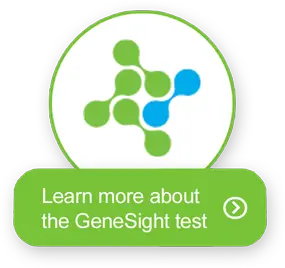Heartbreak hurts.

Some people may experience depression following the end of a relationship. However, it may not be clear if the feelings are sadness or clinical depression.
Sadness, insomnia, or loss of interest in activities are all common emotions after ending a relationship, according to Healthline. However, if you experience more than half of the symptoms below for more than two weeks, you could be diagnosed with depression:
- Feeling sad, empty, or hopeless for most of the day nearly every day.
- Loss of interest in activities you once enjoyed.
- Weight loss and loss of appetite, or increase of appetite and weight gain.
- Sleeping either too little or too much.
- An increase in movements like pacing or hand wringing, or having significantly slower speech and movement.
- Feeling as if you have no energy for most of the day.
- Feeling worthless.
- Difficulty concentrating or making decisions.
- Thoughts about death, also called suicidal ideation.
The Science of Depression & Breakups

The study also found that the feelings toward a former partner following a breakup trigger the same part of the brain that’s activated when someone has a drug craving. Your feelings about another person following romantic rejection, the study suggests, are a specific form of addiction. Enjoyable time spent with another person acts like a reward system to the brain. Emotionally positive social interactions cause people to crave and anticipate similar experiences. When a major source of happiness is removed from someone’s life, they often struggle to see how they will replace that person and those moments.
After a breakup, your brain may simply be reminding you that social relationships are important. It’s why social connection is the strongest protective factor for depression, according to a study in the American Journal of Psychiatry.
Biological factors, including decreased levels of dopamine and serotonin, can help explain sadness after breakups. But symptoms are not meant to be long-term.
Psychology Today suggests overcoming this biological hurdle by telling yourself positive affirmations, like:
- My distress is a result of brain chemistry and I’m not crazy. Just temporarily off balance.
- My anxieties and insecurities don’t necessarily reflect what’s really going on.
- It’s okay for me to feel sad that this relationship has ended. As I grieve, I am moving toward healing.
- I am a growing, changing person and can learn from this experience.
If symptoms persist or worsen long after the end of a relationship, ask for professional help. Untreated depression can lead to several health problems. Just a few of the complications of untreated depression are the use of drugs and alcohol to mask emotions, joint pain, headaches, panic attacks, problems at school, and suicidal thoughts.
Healing After a Breakup
Following a breakup, there are many ways to get back on track.
First, some simple steps toward feeling better about yourself and staying mentally refreshed include tracking sleep, enhancing your diet, exercising, or pursuing a hobby. There are many ways to surround yourself with things that bring you joy, with the key being to find something that works for you.
If you are diagnosed with clinical depression, your doctor may recommend psychotherapy, medication, or a combination of the two. In fact, when both forms of therapy are used together, patients could potentially experience better results.
If your doctor prescribes medication, there are a number of different medications he or she could choose. The GeneSight® test can use your unique genetic information to help your doctor get a better understanding of which medications may be more likely to work and which may require dose adjustments, may be less likely to work, or may have an increased risk of side effects. Using the GeneSight test report, your doctor can personalize your treatment plan, finding a more genetically-optimal medication while avoiding medicines that may cause side effects.
It’s hard when romantic relationships end. Depression can complicate things. Be sure to talk to your doctor as soon as possible if you think you may have depression.
Our articles are for informational purposes only and are reviewed by our Medical Information team, which includes PharmDs, MDs, and PhDs. Do not make any changes to your current medications or dosing without consulting your healthcare provider.
The GeneSight test must be ordered by and used only in consultation with a healthcare provider who can prescribe medications. As with all genetic tests, the GeneSight test results have limitations and do not constitute medical advice. The test results are designed to be just one part of a larger, complete patient assessment, which would include proper diagnosis and consideration of your medical history, other medications you may be taking, your family history, and other factors.
If you are a healthcare provider and interested in learning more about the GeneSight test, please contact us at 855.891.9415. If you are a patient, please talk with your doctor to see if the GeneSight test may be helpful.





